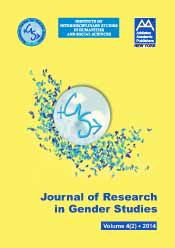APPROPRIATING SHAKESPEARE IN COMMUNIST ROMANIA: A CASE STUDY IN THE DISTORTION OF WOMEN’S IDENTITIES IN TRANSLATION
APPROPRIATING SHAKESPEARE IN COMMUNIST ROMANIA: A CASE STUDY IN THE DISTORTION OF WOMEN’S IDENTITIES IN TRANSLATION
Author(s): George VolceanovSubject(s): Gender Studies
Published by: Addleton Academic Publishers
Keywords: translation; identity; comedy; communism; censor
Summary/Abstract: It is no surprise that Shakespeare translations in Communist Romania were appropriated and “painted red” by the regime (to use Sokolova and Shurbanov’s metaphor). Self-censorship, bowdlerization, and misleading prefaces, commentaries and reviews contributed to the invention of a “Shakespeare for the people” in the light of Marxist-Leninist ideology. Mihnea Gheorghiu, a talented translator and commentator of Shakespeare’s plays, was one of the trumpeters of the Communist regime in the 1950s, too. He was the first censor of his own heavily bowdlerized translations. He did not hesitate to distort the meaning of the original texts, even the identity of Shakespeare’s heroines whenever this suited his purpose. This paper discusses the case of Maria from Twelfth Night and the impact a distorted translation could have on the stage-history of this comedy in the past five decades.
Journal: Journal of Research in Gender Studies
- Issue Year: 4/2014
- Issue No: 2
- Page Range: 889-897
- Page Count: 9
- Language: English
- Content File-PDF

